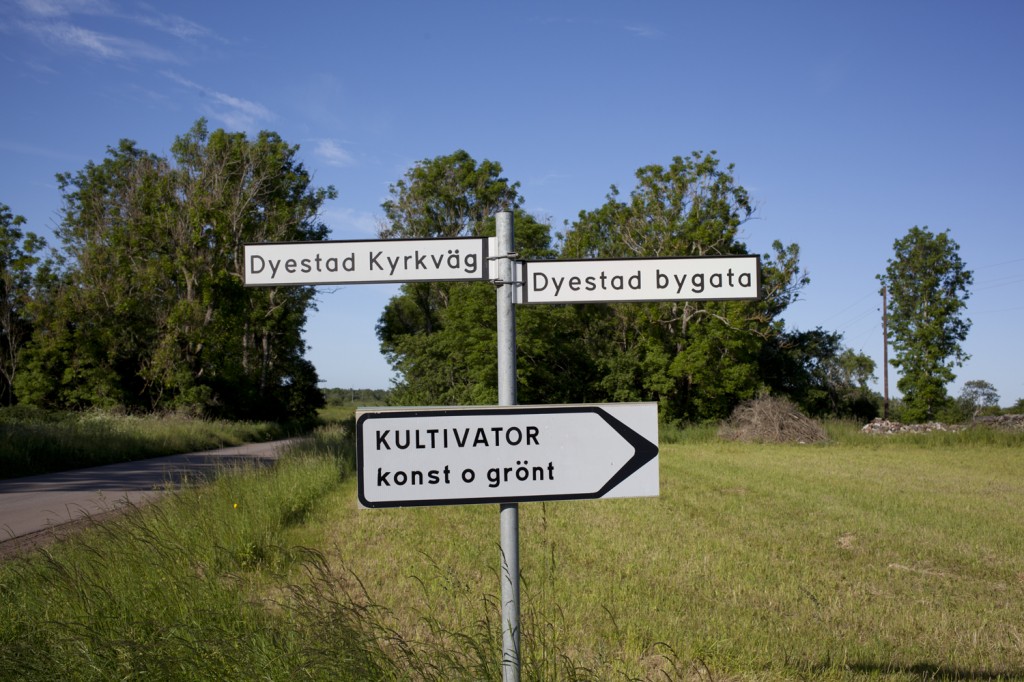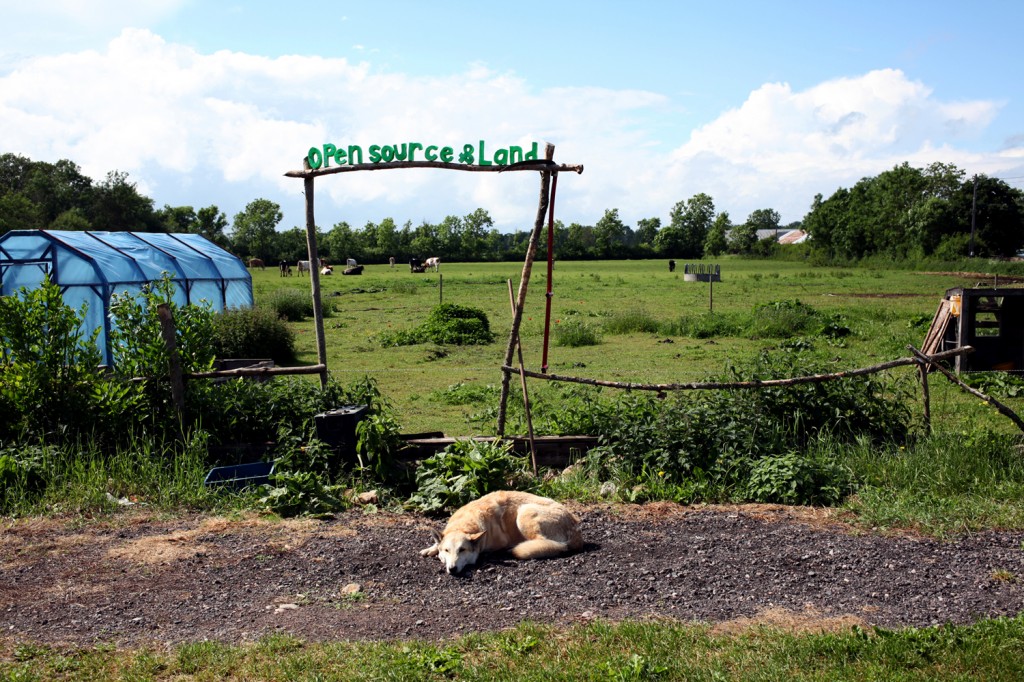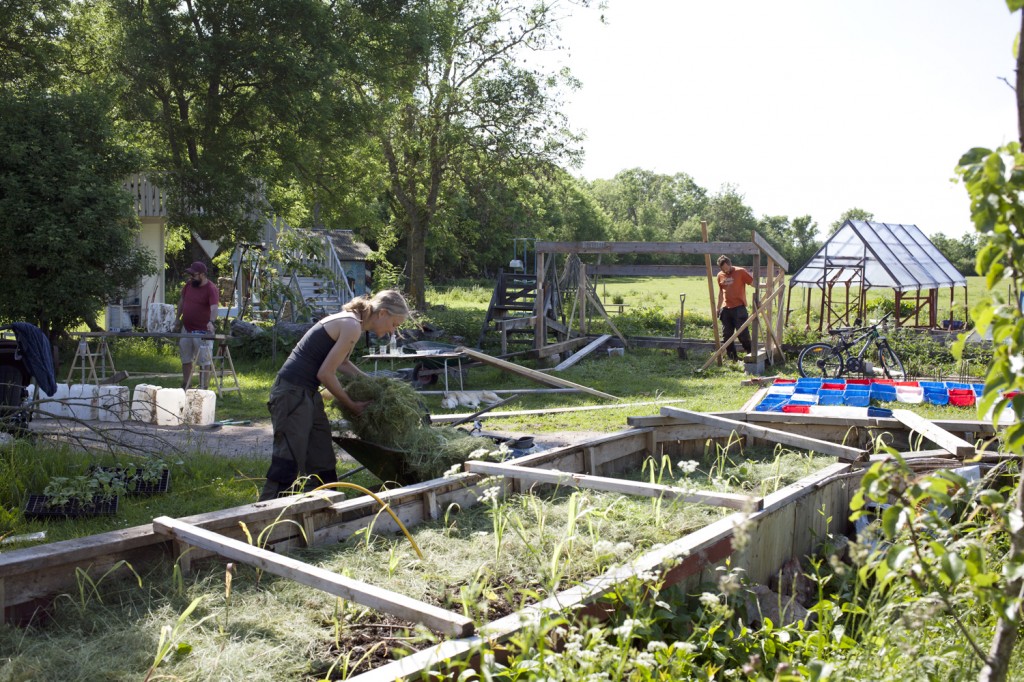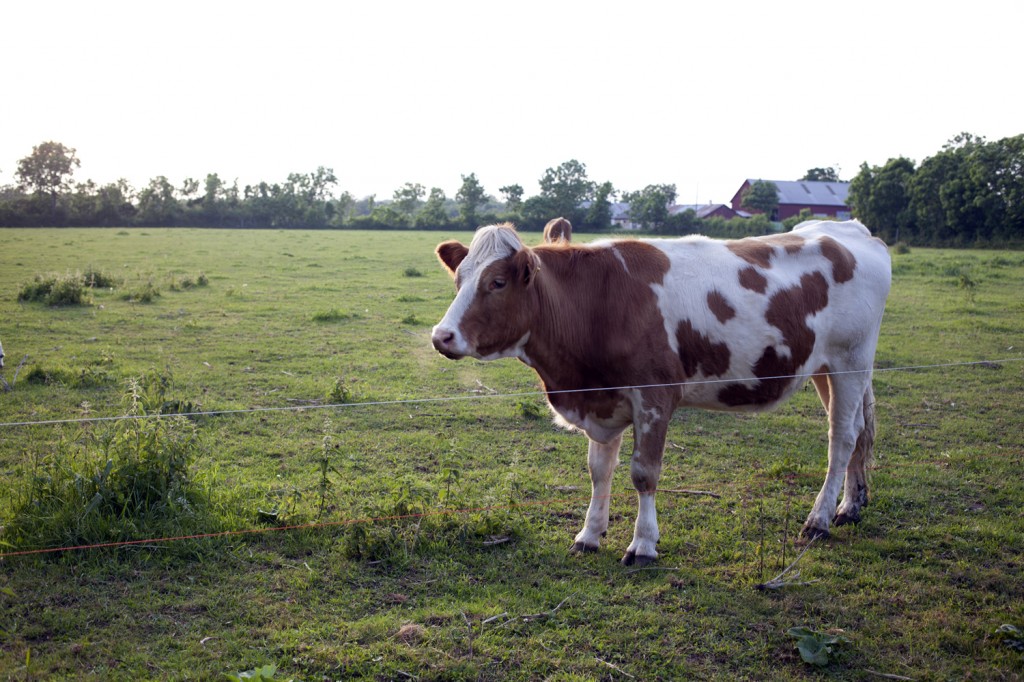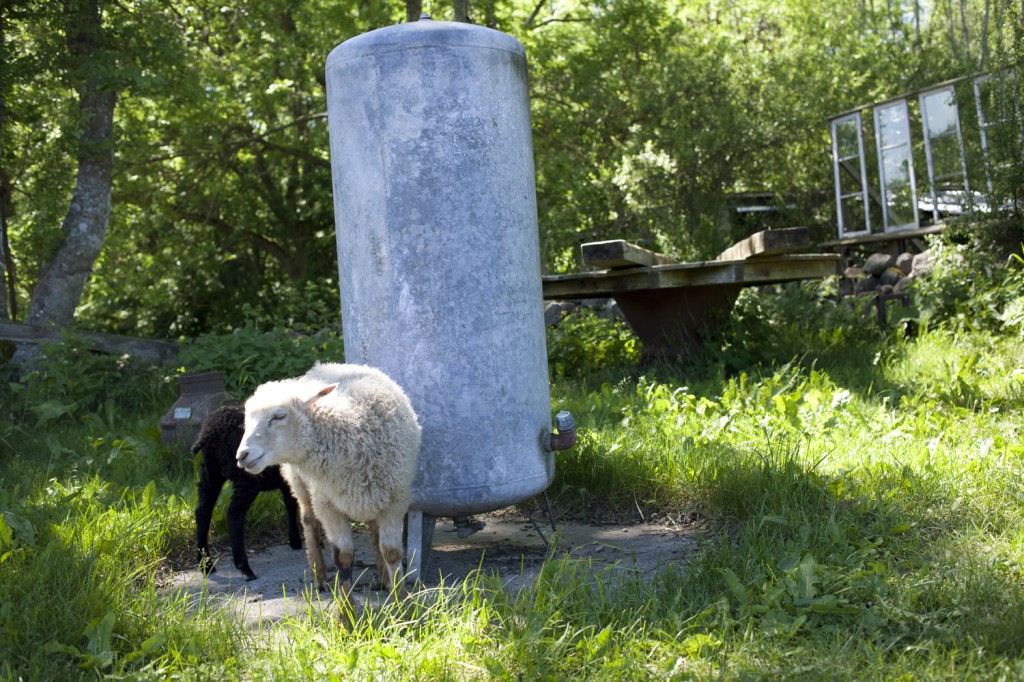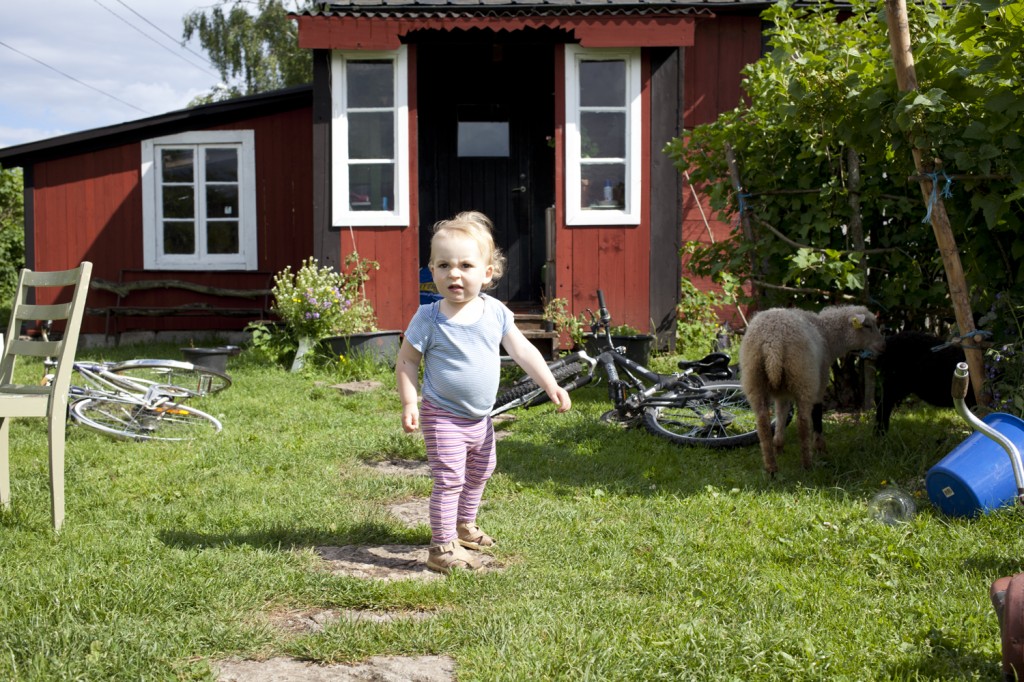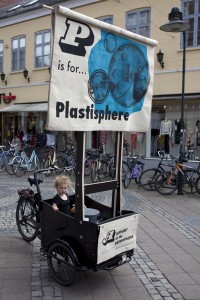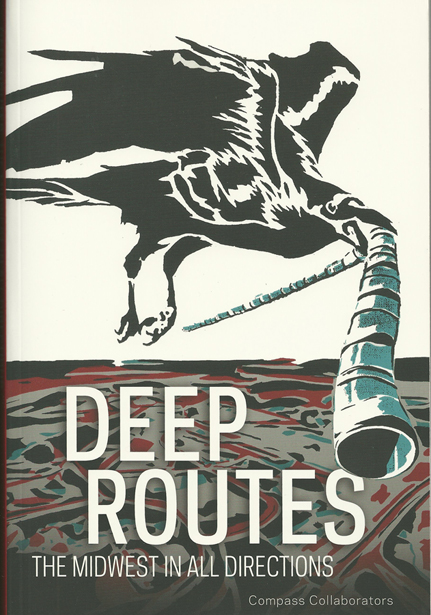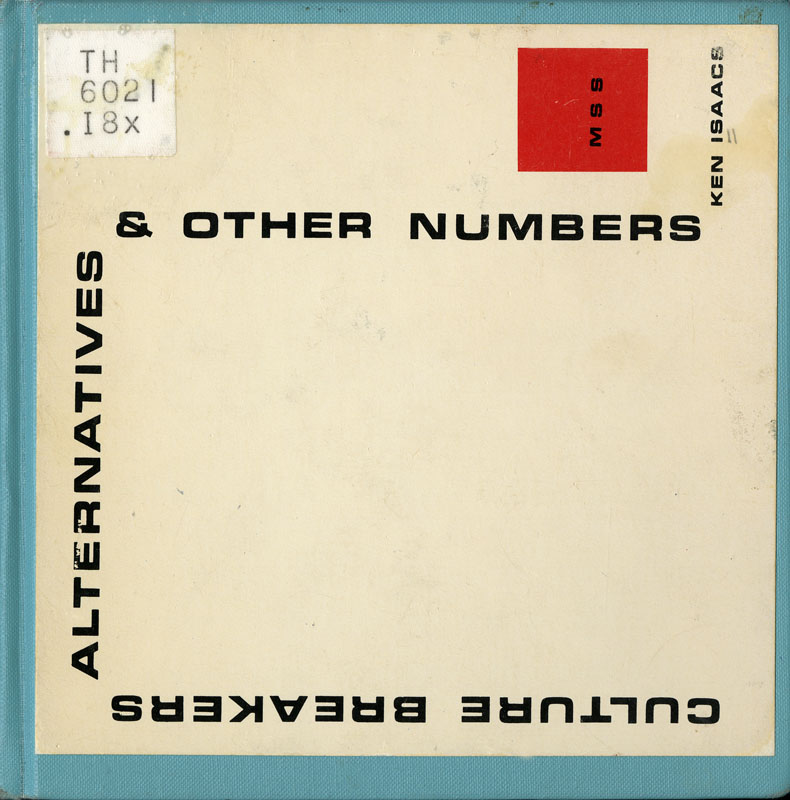Go! Sheepies!: Visit to the Kultivator Farm in Sweden
Like everything they do, the sign leading to the Kultivator Farm is infused with humor. Konst och grönt (Art and Vegetables), a play on the typical Swedish kiosk sign frukt och grönt (fruit and vegetables). “It’s nice to have a relative who works for the city. He just shows up with these signs. Doesn’t say anything, just hangs them up,” says Mathieu Vrijman as we turn down the road leading to the farm, “Like this one here.” He points to an official looking sign hanging at the front of their driveway. It reads Holländare because Mathieu is Dutch.
Mathieu and Malin Lindmark Vrijman met while studying art in Holland. They moved to their current location, Dyestad (Mud City) near Kalmar, Sweden on the island of Öland in 2003. After 10 years of managing both art and agriculture they are adept at what they do, moving easily from nursing a baby sheep to discussing aesthetics with a visiting art student. We recently spent the weekend at the farm to interview them for the book I am working on about artists who work with ecology.
Their land neighbors an organic dairy farm; walking out the front door you see fields of grazing cows. There is always fresh milk to drink and the sounds of cows “moooing” in the distance. The Kultivator farm is a chaotic arrangement of buildings, old projects, discarded tools, animals, and growing things. We fell happily in sync with the environment. As our daughter chased the sheep, we helped with building a bicycle shed (more on that soon) and planting a 3 sisters garden–a method of companion planting combining corn, beans, and squash developed by native Americans (see our previous post about the Abenaki Heritage Garden). The squash provides ground cover and nutrients while the beans provide nitrogen and use the corn as natural poles on which to grow.
Malin and Mathieu maintain themselves by hosting conferences and gatherings on the farm, like the recent Digital Cultures gathering, teaching courses like Creative Activism at the local art school, and traveling often for exhibitions and artist talks. Their art practice is a hybrid blend of installation and performance art, photography, and activism. Their projects range from practical, like Friend Farm–connecting rural communities around the world so that they can share knowledge between each other–to poetic, like the Lunch with Cows–a group dinner with people on one side and cows on the other. Though it is diverse their work maintains a consistent theme of agriculture and grounding in the landscape.
It’s not easy to maintain a rural art practice with two children and an economy based with one foot in the arts and one foot in agriculture–two professions with notoriously unstable economic realities. Despite juggling several roles, Malin and Mathieu are still generous and genuine people, who are also both art educators. They readily share narratives of why they do the art they do or their thoughts on the world in such a way that you don’t feel like you might be learning something–about farm economics, or how to scythe grass, or what it means to own animals.
Malin and Mathieu are energetic and always up for new projects, but while we were at their farm they expressed a desire to slow down more as they enter into the next ten years of living in rural Sweden. They want to focus on more long-term work that brings about more lasting social change. Recently they have been invited to do projects related to composting or building a chicken coop as part of art events but only for a short period of time, while this opens up possibilities for discussion and makes an economy for them, the temporariness can become draining. Both Malin and Mathieu said they would like to focus on creating more long-term cultural change; creating more resilient communities that are aware of the ways in which agriculture supports us. They are cultivating an expanded idea of what culture can be on their farm and working to extend it outwards into the world.
Radio Aktiv Sonic Deep Map (2013)
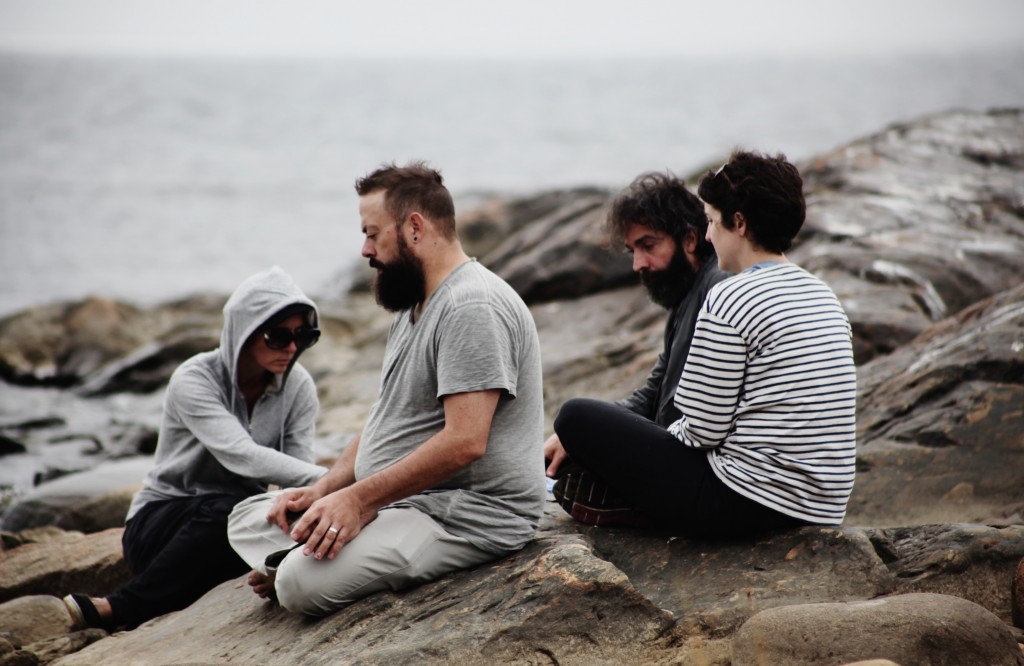
SUPERKILEN – Extreme Neoliberalism Copenhagen Style
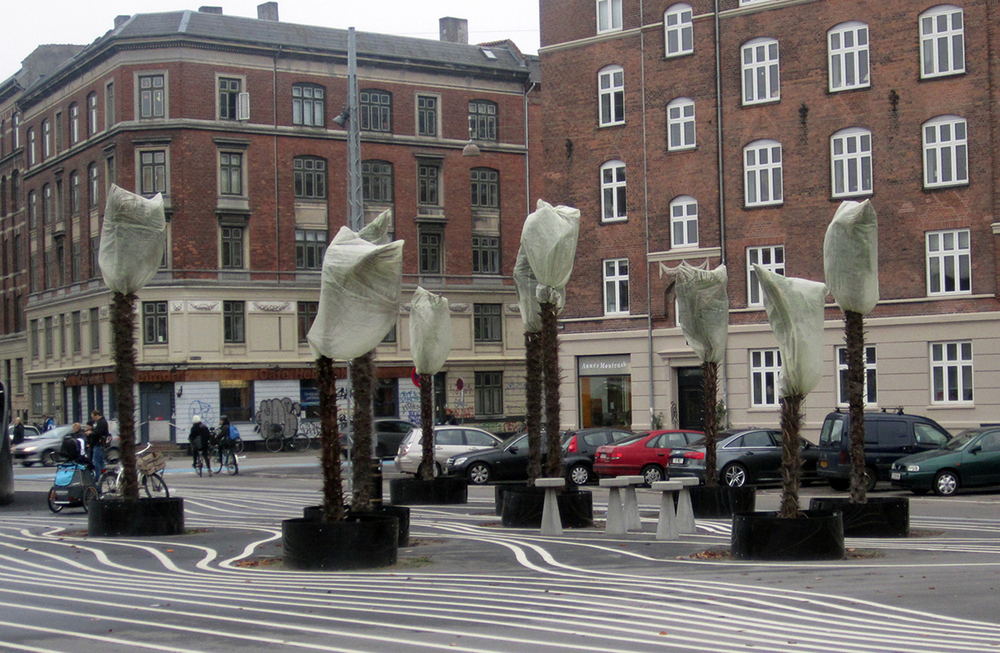
Read Brett's essay about the park.
Download our guide:
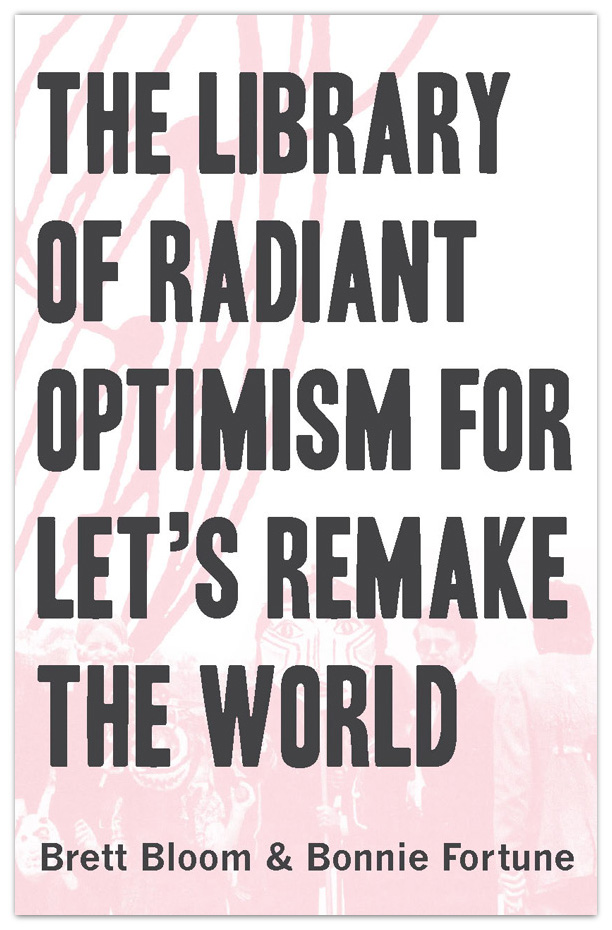
This is our guide to how-to books from the counterculture of the 60s and 70s. Click to get the download page.
Categories
- Agriculture (11)
- Animal sounds (1)
- Artist parents (19)
- Arts and culture (106)
- Bees (3)
- Book reviews (14)
- Books (18)
- Critical essays (5)
- Daily Photo (5)
- Design (36)
- Dirt (11)
- Environmental activism (43)
- Exhibitions (24)
- Farms (11)
- Forest (7)
- Friday connect (15)
- Growing (42)
- Habitat (38)
- Homesteading (16)
- Interviews (15)
- Kitchen (14)
- Living structure (9)
- MISC (15)
- Mythological (2)
- Neighborhood (83)
- Ocean News (1)
- Our Art Work (21)
- Personal – Design/Art (3)
- Play (2)
- Playground (4)
- Projects (21)
- Public space (53)
- Resilience (13)
- Sea Side (2)
- Sojabønner (2)
- Tofu (8)
- Vermont correspondence (7)
- Water (3)
- Wednesday picture (31)
- Workshop (1)
Video interview:
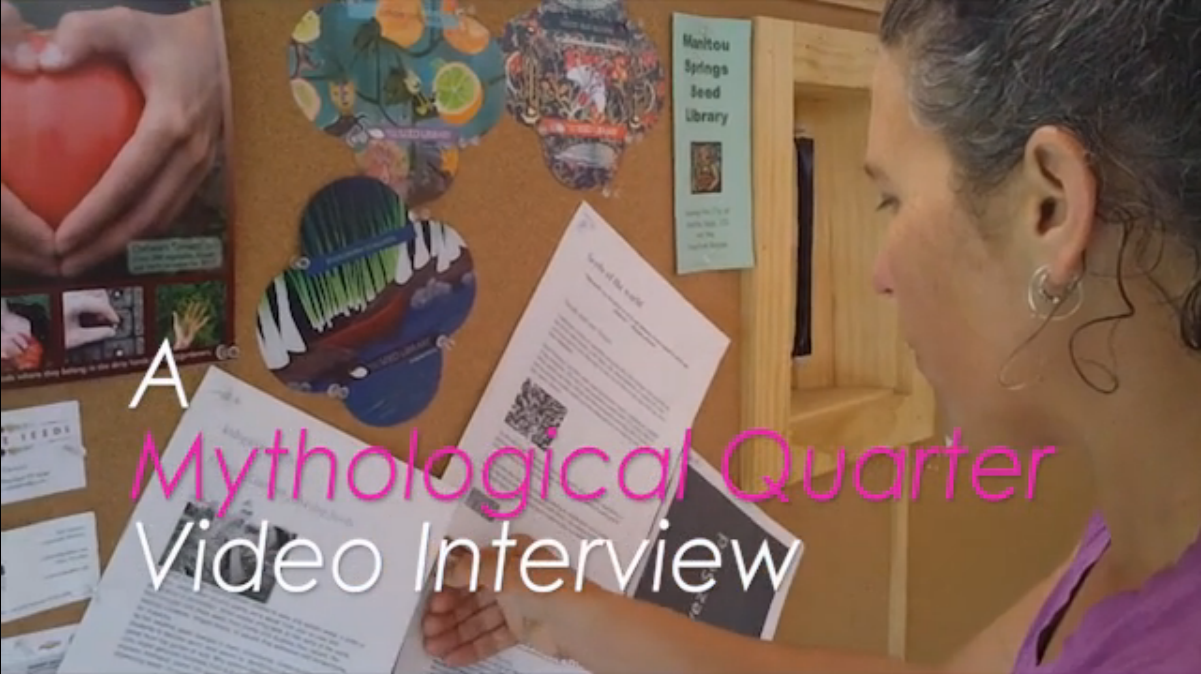
Watch our interview of SeedBroadcast, a mobile project that is part seed library and part seed-saving-story-collecting machine-recording the stories of seed saving, farming, and food sovereignty work being done around the US.
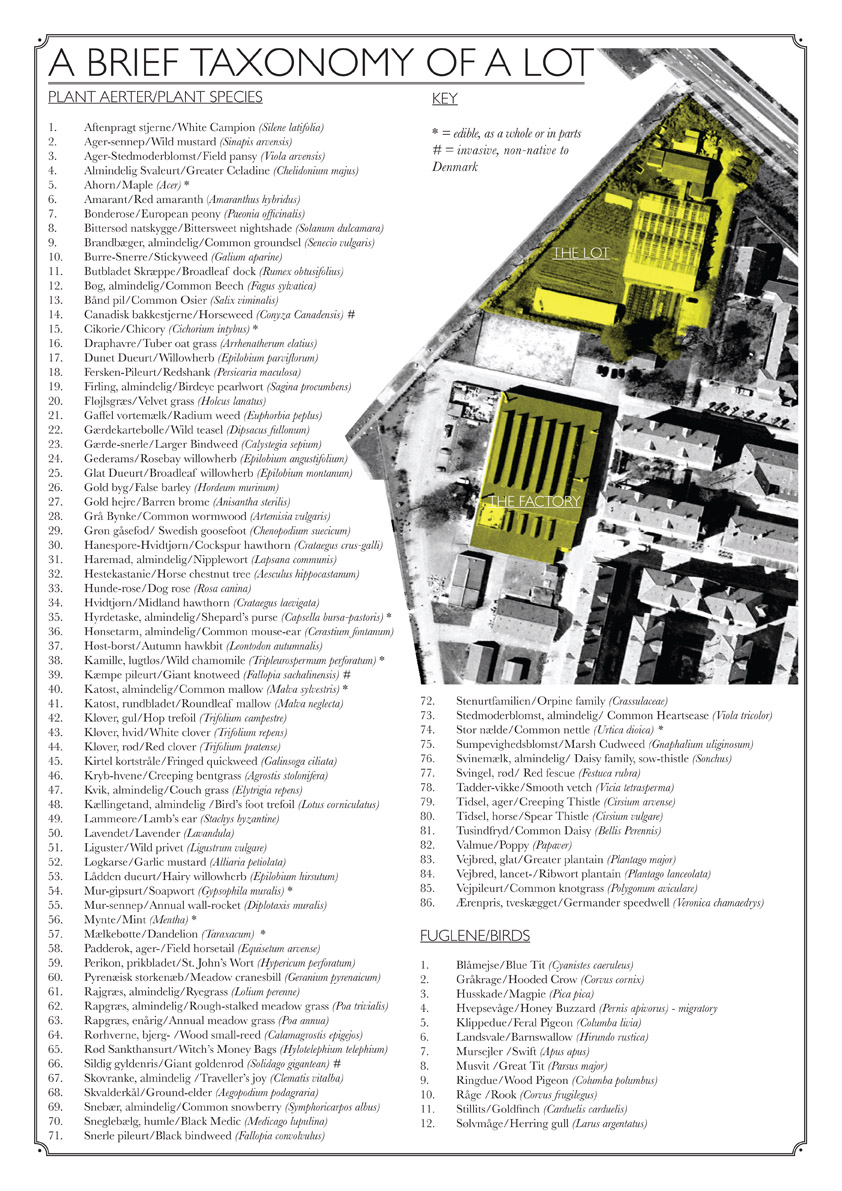
Download a poster Bonnie made about biodiversity in a vacant lot in the Amager borough of Copenhagen, in collaboration with biologist, Inger Kærgaard, ornithologist, Jørn Lennart Larsen and botanist, Camilla Sønderberg Brok: A BRIEF TAXONOMY OF A LOT
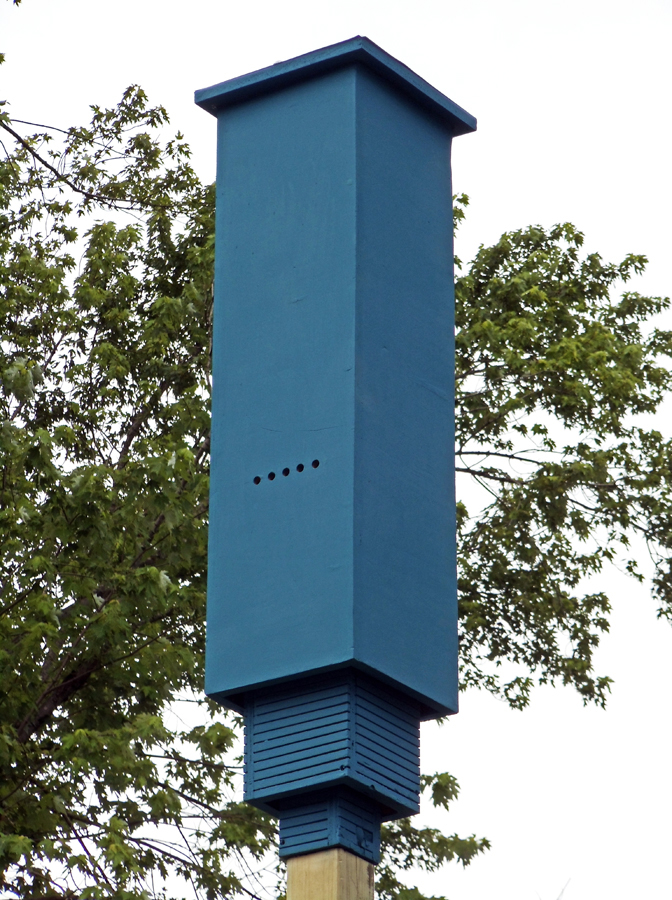
We made and installed a network of bat houses in Urbana, Illinois, to support the local and regional bat population, but also to begin a conversation about re-making the built environment.
READ MORE
BOOK REVIEW:
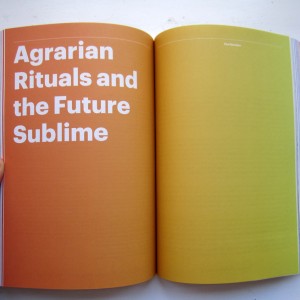
We write often about artists and art groups that work with putting ‘culture’ back in agriculture. Here is a new favorite: myvillages, a group of three women based in Germany, the Netherlands, and the UK. Read more...
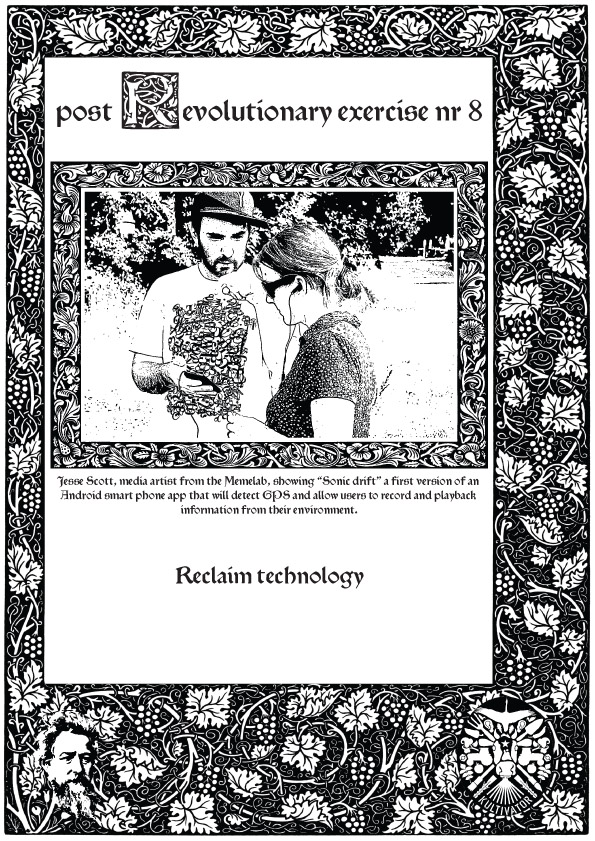
Post Revolutionary Exercises
We really admire the dedicated hard work of Kultivator who seeks to fuse agriculture and art in their work. Click this sentence to get a PDF of their poster collection called "Post Revolutionary Exercises."
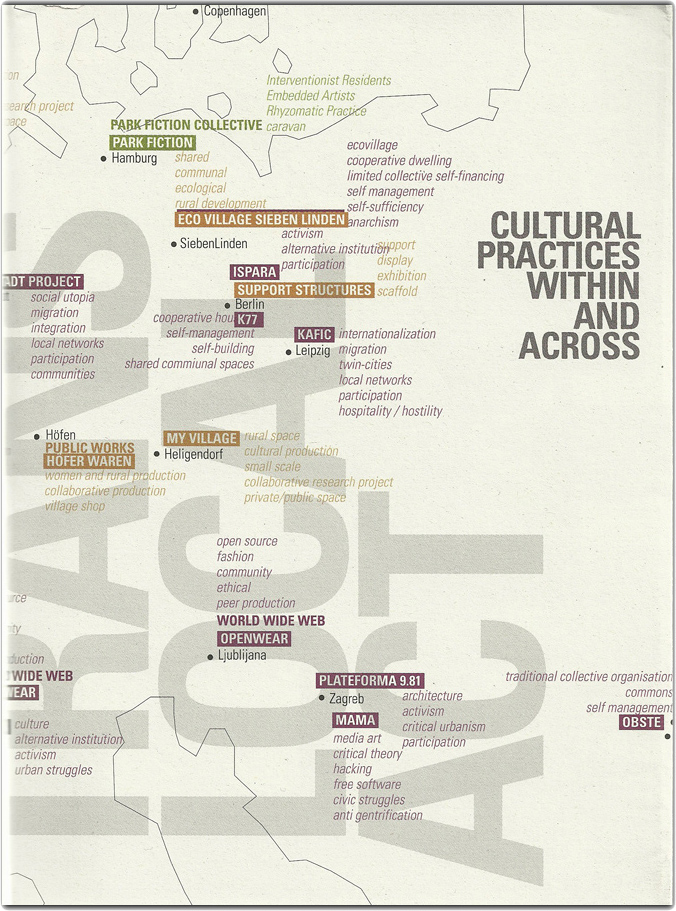
Cultural Practices Within And Across
This amazing book networks urban and rural resilience and sustainability projects around the world. Deeply inspiring projects in Romania, Paris, San Francisco, and elsewhere.
• Read our review of the book.
• Buy the book.
• Download the book.

